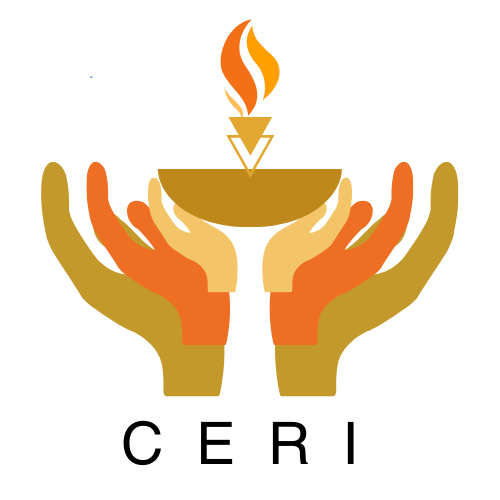About us
In 2006, CERI came to life through the vision of Dr. Mona Afary, an immigrant from Iran and women’s rights advocate, and the commitment and guidance of 10 extraordinary individuals — most of whom were refugees and immigrants — serving on the board. This vision found its heart and strength in the partnership of CERI’s participants — survivors of the Khmer Rouge genocide — who, for over 20 years, carried the heavy burden of PTSD and decades of silence. Though they had lived in the Bay Area, they remained on the margins, denied access to trauma-informed care and culturally grounded services, with the essential tools of interpretation and translation. It was the courage and determination of these Cambodian refugees, led by the strength and leadership of the women survivors, that transformed this vision into a powerful reality and laid the foundation for CERI’s journey.
What started as a lifeline sparked a movement —one rooted in healing, community, and empowerment. Inspired by the resilience and leadership of the Cambodian survivors of genocide, CERI became a sanctuary, not just for survival but for connection and liberation. Initially established as a haven for Cambodian genocide survivors, CERI evolved into a community foundation for Southeast Asian immigrants and refugees to reclaim their voices and find their strength together.
Over time, the organization’s mission grew, embracing intergenerational mental health care, advocacy, and social services alongside training, education, and cultural enrichment. Each program fosters not only individual healing but collective empowerment, creating a space where community members lead the way toward systemic change and inspire others to do the same.
For 18 years, CERI’s holistic, community-based model has bridged generations, transformed lives, and built pathways to wellness and self-determination. Thousands of youths, adults, and elders have found solidarity and support within its embrace. Today, CERI proudly serves over 1,200 refugees and immigrants annually, celebrating the vibrant diversity of Cambodian, Vietnamese, Burmese, Afghan, Tibetan, Nepali, Iranian, and Eritrean communities across the Bay Area.
Vision
A resilient community living life with joy, determination, purpose and love.
Mission
CERI cultivates the healing, advocacy, and empowerment of refugee and immigrant communities affected by war, torture, genocide, and other life-altering traumas, weaving together intergenerational resilience into a holistic model of community mental health care.
Our Model
CERI’s model improves access to mental health care among refugees and immigrants by providing holistic, trauma-informed, and culturally-rooted community care. Our services are intentionally interwoven with the richness of cultural expressions. When youth and families first arrive at CERI, they often say that it feels like home. From the design of our welcoming space, to the cultural meals we share, to the community-led programming, CERI fosters a loving environment that celebrates diverse cultures and collective healing. Our staff are trusted leaders from the community, reflecting the experiences, cultures, and languages of the clients we serve.
New community members often first come to CERI seeking help with essential needs–finding housing, applying for public benefits, accessing medical care, and searching for employment. CERI’s care coordinators offer systems navigation, accompaniment, and interpretation/translation to anyone who walks in the door.
Our staff also refer clients to CERI’s support groups. Group-based care has been central to our model since our beginnings. Starting first with Cambodian survivors of the Khmer Rouge genocide, today we have at least 10 different groups serving our diverse communities.
After working with care coordinators or participating in groups, trust is built and clients open up about their deepest concerns, stresses, and dreams. CERI’s care coordinators are trained in Lay Counseling, and can provide skilled emotional support that is culturally contextual and in-language. As community leaders, Lay Counselors help fill critical gaps in the “traditional” mental health workforce, which is generally unaffordable, lacking cultural representation, and unable to meet rising demand. CERI is a part of a growing movement in Bay Area mental health to increase access to Lay Counseling.
At the same time, clients can access therapy with licensed providers on our clinical team. Western therapy models often feel stigmatizing or inaccessible in immigrant and refugee communities, so our clinical services include mindfulness practices, somatic modalities, and Internal Family Systems—strategies that often align more naturally with the values and healing traditions of our clients.
Healing also happens through communal activities. Whether it's meditation, dancing, gardening, knitting, or cooking, these practices are woven into our programs. We regularly host cross-cultural and intergenerational community gatherings—camping trips, town halls, and cultural celebrations. Every activity reflects our commitment to work alongside our communities to understand the practices that truly promote wellness and connection.
CERI doesn’t just provide services—we amplify voices. Community members draw strength from one another to rewrite their personal and collective narratives—transforming trauma into resilience and isolation into connection. Each year, we train diverse cohorts of social work interns and grassroots leaders from refugee and immigrant communities in fundamentals of trauma informed care and advocacy. We’ve played a key role in shaping mental health policy recommendations with immigrants and refugees in California, and support civic engagement through multilingual voter education and registration.
Our work is grounded in the belief that health, justice, and liberation are interconnected. In this era of increasing threats to immigrant and refugee communities, healing justice is an embodied practice in our work, where we weave together cultural-based healing with collective action, recognizing that the personal is political.
